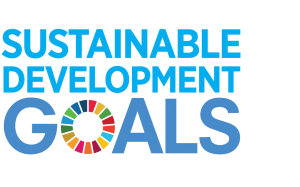GEORGE’S GRENADA, MARCH 3 2025- Regional GIS Officers, Soils scientist, technicians, agricultural officers and other agricultural experts, are expected to play a pivotal role in developing maps and managing data on sequestration of soil organic carbon, as part of efforts to restore land and soil degraded within their respective countries. The participants from the Caribbean Small Island Developing States (CSIDS) multicountry soil management initiative for Integrated Landscape Restoration and climate-resilient food systems (SOILCARE) Phase 1 Project countries- Antigua and Barbuda, Barbados, Grenada, Guyana, Haiti, Jamaica and St. Lucia, spent February 10-15 2025 being educated on the various tools and approaches to be utilised for mapping of soil organic carbon sequestration.
The training was organised by the Partnership Initiaitive for Sustainable Land Management (PISLM), in collaboration with the Global Soil Partnership, of the Food and Agriculture Organisation (GSP-FAO) and funding from the Global Environment Facility (GEF). Soil organic carbon sequestration refers to the process of capturing carbon dioxide and securely storing it underground or utilizing it in other applications to prevent its release into the atmosphere; a practice that supports the reduction of carbon footprints but also aligns with the growing global emphasis on reaching net-zero emissions targets.
“This soil organic carbon data emphasizes the importance of Carbon sequestration, we have compiled some information, are able to capture data and navigate the Rstudio application,” explained Fred Roches-Agricultural Officer at the Ministry of Agriculture, Food Security, and Enterprise- Belize.
The training allowed the participants to know which soils have a larger carbon gap compared to the highest amount they can store – along with management strategies.
“It also helped us to establish a baseline, in terms of what we have. We can then have predicted models make better decisions to support policies that will protect our soil, “commented Karrym Forsyth-Agronomist at the Ministry of Agriculture and Lands, Forestry, Marine Resources and Cooperatives Grenada.
Following the completion of this training, regional technicians are now better able to harness their expertise to play an active role in safeguarding the Caribbean’s Soils and land. Participant Paul Collymore- Manager for Information Systems at the Barbados Lands and Surveys Division is hopeful that the data can help, “To make better decisions, informing farmers and other stakeholders in agriculture, that they can have better results.”
Another participant Brittany Bygrave- Cartographer from Jamaica, believes that her country, “Will be able to map, the areas that can retain more carbon, comparing it to other areas.”
The regional approach to sequestering Carbon is a crucial step toward creating lasting environmental protection and improving soil and land health. A total of 27, participants from the eight (8) project countries that are part of the Caribbean Small Island Developing States (CSIDS) multicountry soil management initiative for Integrated Landscape Restoration and climate-resilient food systems (SOILCARE), project Phase 1, participated in the training.


